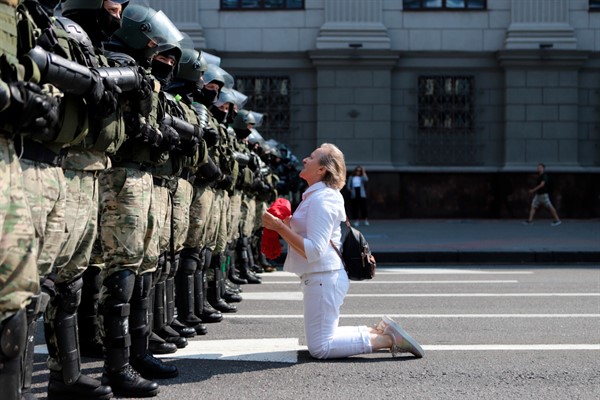A raging pandemic, an absent America and an emboldened China have exacerbated an ongoing global democratic recession. That is the message of “Freedom in the World 2021,” Freedom House’s latest status report on the fortunes of democracy. During 2020, democracy retreated for the 15th consecutive year, deteriorating in 73 countries and improving in only 28—a record margin according to Freedom House, which has been tracking these trends for more than 40 years. Reversing this decline will require established democracies to play both defense and offense, bolstering democracy where it is under siege and challenging the anti-democratic message of the world’s authoritarian powers.
Every year, Freedom House classifies nations into three categories—“free,” “partly free” and “not free”—based on the quality of their civil and political liberties. In 2020, the number of “not free” countries (54) was the highest and the number of “free” nations (82) the lowest since 2005. From a population perspective, the situation is even more dire. India declined to “partly free” status in 2020, meaning that fewer than 20 percent of the globe’s inhabitants now live in a “free” country today, by Freedom House’s measure.
Declining democracy is a worldwide phenomenon, as a few examples will attest. In East Asia, China imposed new restrictions to crush Hong Kong’s pro-democracy movement; Cambodia’s ruler Hun Sen expanded his ability to curtail dissent; and Thailand was reclassified as “not free,” because of the military-dominated government’s “crackdown on youth-led protests calling for democratic reforms” and “the dissolution of a popular opposition party that had performed well in the 2019 elections,” as Freedom House put it. In the Americas, Venezuelan strongman Nicolas Maduro used fraudulent elections to subvert the legitimacy of a democratically elected legislature, while Peru declined from “free” to “partly free” amid political turmoil. In Africa, Tanzanian President John Magufuli entrenched his autocratic rule, while Mali was reclassified as “not free” following a coup against its democratically elected government.

